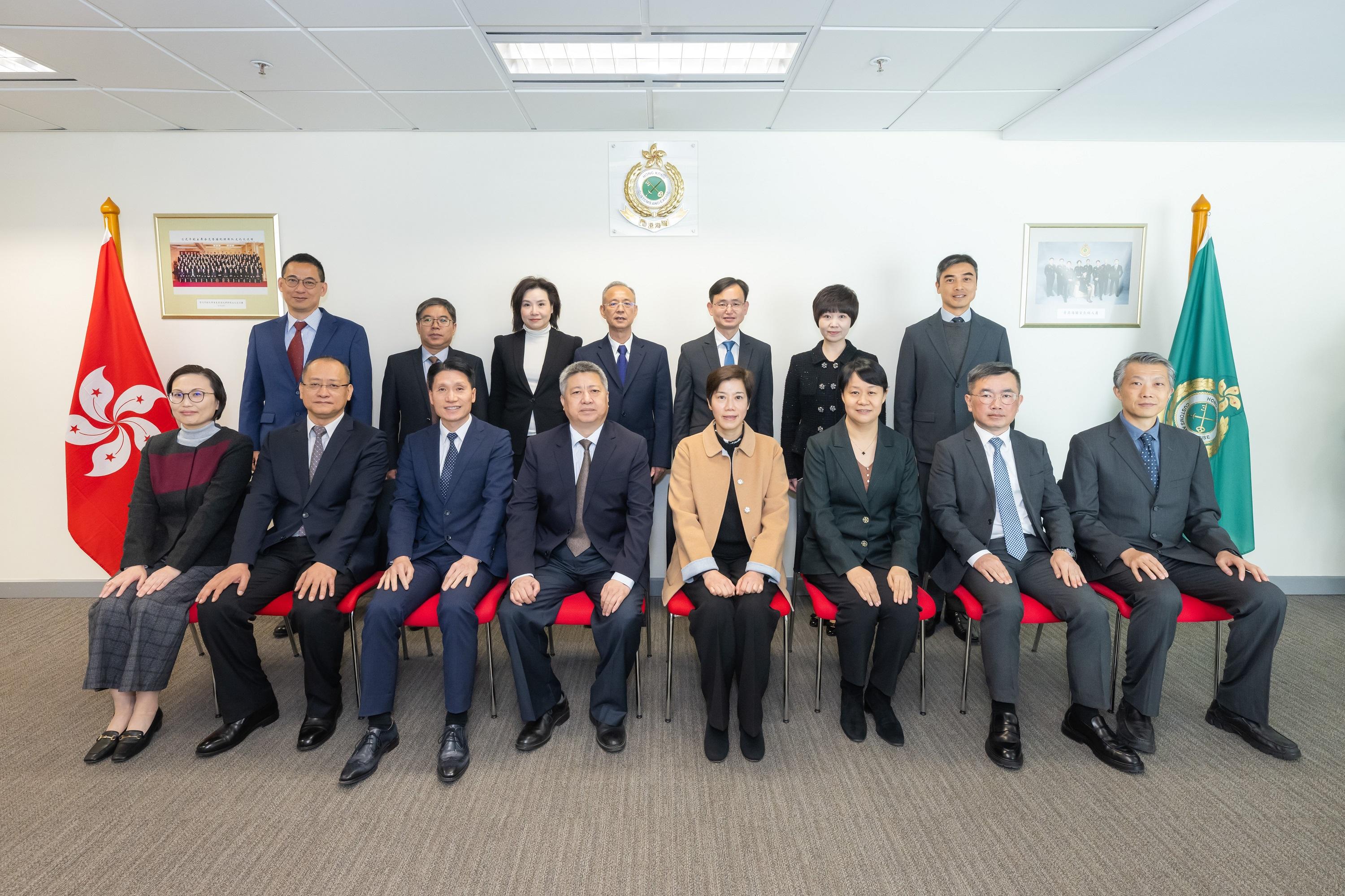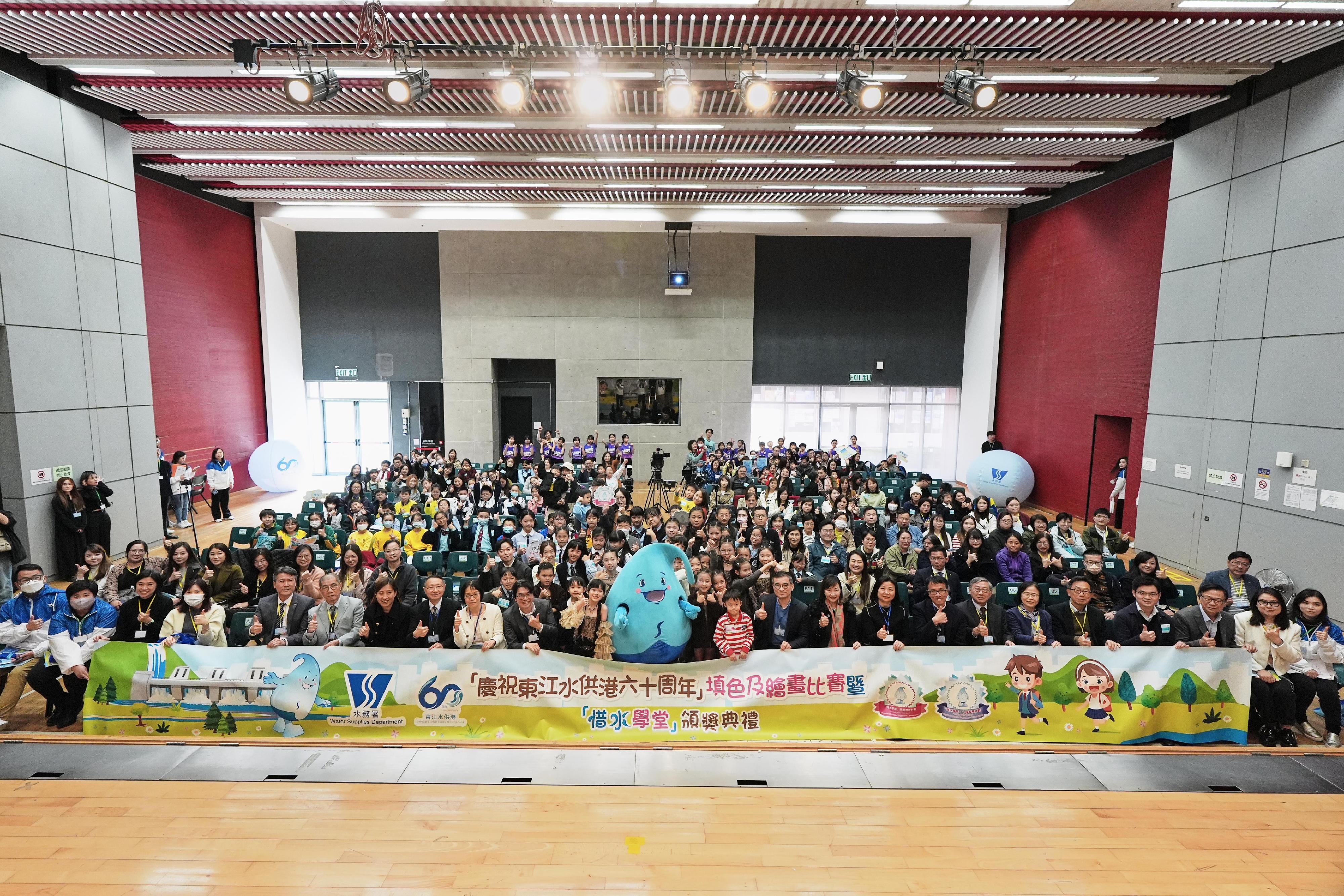Following is a question by the Hon Chan Hoi-yan and a written reply by the Secretary for Health, Professor Lo Chung-mau, in the Legislative Council today (December 18):
Question:
The Government has been planning for the establishment of Community Health Centres (CHCs) in a number of districts since 2010, and the establishment of new CHCs is also covered in the First and Second Ten-year Hospital Development Plans. In this connection, will the Government inform this Council:
(1) whether it knows the positioning of CHCs at present; the services generally provided by various CHCs, and which of them are standing services;
(2) whether it knows the respective staff establishment of various CHCs at present (set out by profession);
(3) whether it knows the respective numbers of attendances for general outpatient services (broken down by patients with episodic diseases and patients with chronic diseases) and the numbers of attendances for health risk assessment at various CHCs in each of the past five years;
(4) of the districts in which the authorities are planning to set up new CHCs (set out by District Council district), and the details of the projects concerned, including the completion time;
(5) as there are views pointing out that CHCs and District Health Centres are both regarded as important facilities for primary healthcare services in the community, of the coordination and division of labour between the two in the provision of services; and
(6) given that it is proposed in the Chief Executive’s 2024 Policy Address to integrate the services of Woman Health Centres and Elderly Health Centres, which are also part of the primary healthcare services, whether the Government has considered reviewing at the same time the role and positioning of CHCs as well as the needs of the community, so as to put forward a more comprehensive planning proposal for the establishment of new CHCs in various districts?
Reply:
President,
In consultation with the Primary Healthcare Commission (PHCC) and the Hospital Authority (HA), a consolidated reply of the Health Bureau to the question raised by the Hon Chan Hoi-yan is as follows:
Primary healthcare is the first point of contact for individuals and families in disease prevention and treatment, providing citizens with accessible, comprehensive, continuous, co-ordinated and family-centred care in the communities where they live and work. Hong Kong’s primary healthcare system operates on a dual-track system encompassing the public and private sectors. To shift the emphasis of the present healthcare system and mindset from treatment-oriented to prevention-oriented, the Government is committed to enhancing prevention-oriented primary healthcare services in accordance with the reform initiatives set out in the Primary Healthcare Blueprint (Blueprint).
Public primary healthcare services are currently provided by the HA through its General Out-patient Clinics (GOPCs). The GOPCs are positioned to prioritise the care for low-income persons and the underprivileged, as well as chronic disease patients with stable conditions and episodic disease patients with relatively mild symptoms. The services provided by the GOPCs include medical consultations, general nursing services (such as drug injection and wound dressing) as well as patient education and support services.
To support general out-patient services, the Government has been actively developing Community Health Centres (CHCs) in recent years, providing services in Tin Shui Wai, North Lantau, Kwun Tong and North District respectively. The CHCs are designed to tie in with the primary healthcare development strategy and service model. They strive to provide patients with integrated multidisciplinary healthcare services such that patients will be offered more comprehensive primary healthcare services, and strengthen community support for patients, especially chronic disease patients who are in stable conditions and require additional support (such as patients with multiple chronic diseases and in stable conditions), helping them stay healthy in the community and reduce their need for hospitalisation. Patient empowerment services and facilities are available at the CHCs to encourage patients to make good use of community resources and enhance their self-efficacy in disease management. The CHCs also provide a comprehensive range of diverse nursing and allied health services, such as a series of primary healthcare services enhancing the management of chronic diseases, including conducting health risk assessments and providing targeted care for chronic diseases patients with diabetes mellitus or hypertension specific care.
Additionally, to further support the GOPCs and strengthen the gatekeeping role of primary healthcare in the public secondary healthcare system, the HA also provides Family Medicine Specialist Clinic (FMSC) services through its service points in hospitals and clinics. Attended by Family Medicine specialists, the FMSC service provides integrated disease management and support to patients who are in relatively complex conditions but are still suitable for treatment at primary healthcare level (such as patients who are in relatively stable conditions but still require specialist support) through a primary and secondary healthcare referral mechanism driven by an evidence-based, protocol-driven care pathway.
The HA GOPCs have an annual attendance of over five million. As for the three CHCs supporting the GOPCs, (excluding the North District CHC which commenced service on December 16, 2024), the number of attendances in the past five years and, among them, the number of attendances for health risk assessments are set out at Annex. Regarding the manpower arrangement, since the CHCs adopt a multidisciplinary team approach in primary healthcare service provision, involving doctors, nurses, dietitians, dispensers, optometrists, podiatrists, physiotherapists, pharmacists, social workers, clinical psychologists, occupational therapists and supporting staff, etc. The medical teams of a GOPC and its supporting CHC in the same district will support each other in terms of their services, spanning different service programmes and service locations. Manpower is flexibly deployed by the clinics according to service volume, and there is no fixed staff establishment.
In planning and developing public primary healthcare services, the Government will take into account a number of factors, including the primary healthcare service delivery model, demographic changes, distribution of service targets and provision of primary healthcare services in the districts, as well as the demand for public primary healthcare services. To strengthen multidisciplinary support for underprivileged chronic disease patients, the Government will set up CHCs in Tuen Mun Area 29 West, the New Acute Hospital in the Kai Tak Development Area and Our Lady of Maryknoll Hospital. The relevant works projects are underway and are expected to be completed gradually from 2025-27. The Government also plans to further develop CHCs in areas including Shek Kip Mei, Sau Mau Ping, Cheung Sha Wan, Kam Tin and Tai Po. The Government will consult the Legislative Council in due course.
In terms of private primary healthcare services, the Government is striving to implement the initiatives of the Blueprint, with an emphasis on strengthening the concept of “Family Doctor for All”, particularly in chronic disease management, so as to, on the one hand, cultivate a long-term doctor-patient relationship between the patients and their Family Doctors, and on the other, reduce service duplication between the public and private sectors by narrowing their difference in costs through government subsidies and co-payment principles for optimisation of private healthcare resources. Apart from providing treatment to citizens based on their health conditions, Family Doctors also provide continuous support to citizens throughout different stages of their life, such as vaccination, cancer screening, chronic disease screening and management, health education and self-management of disease.
To enhance the support for Family Doctors, the PHCC has set up District Health Centres and District Health Centres Expresses (collectively referred to as DHCs) in all 18 districts across the city with a view to enhancing district-based primary healthcare services. DHCs serve as the district healthcare resource hubs that connect public and private healthcare service providers from different sectors and disciplines in the community. DHCs currently provide citizens with primary healthcare services such as promotion of life course preventive care, health risk factors assessment, disease screening, chronic disease management and community rehabilitation services, through strategic purchasing, medical-social collaboration as well as service integration. Meanwhile, the Government launched the Chronic Disease Co-Care Pilot Scheme (CDCC Pilot Scheme) in mid-November 2023 to establish the Family Doctor regime and position DHCs as a hub in fostering the expansion of healthcare networks at the community level.
The Government will continue to promote the development of public and private primary healthcare on all fronts. As stated in the 2024 Policy Address, the Government will enhance the role of the HA’s GOPCs as primary healthcare service providers for the underprivileged by introducing chronic disease screening services and strengthening nurse clinic services. At the same time, the Government will also expand the service cope of the CDCC Pilot Scheme to cover blood lipid tests, examine the feasibility of integrating the GOPC Public-Private Partnership Programme under the HA into the CDCC Pilot Scheme, as well as expedite the development of DHCs with a view to strengthening the support for Family Doctors and putting the concept of “Family Doctor for All” into practice. read more








